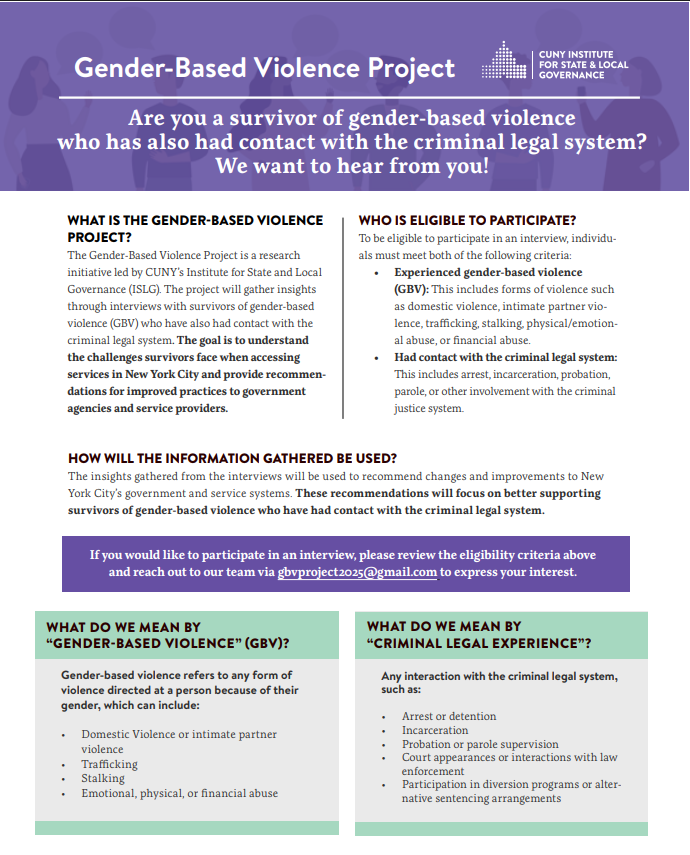Supporting Survivors of Gender-Based Violence Impacted by the Legal System
Are you a survivor of gender-based violence who has also had contact with the criminal legal system? We want to hear from you!
The Gender-Based Violence Project is an initiative led by CUNY ISLG. The project will gather insights through interviews with survivors of gender-based violence (GBV) who have also had contact with the criminal legal system. The goal is to understand the challenges survivors face when accessing services in New York City and provide recommendations for improved practices to government agencies and service providers.
WHO IS ELIGIBLE TO PARTICIPATE?
To be eligible to participate in an interview, individuals must meet both of the following criteria:
Experienced gender-based violence (GBV): This includes forms of violence such as domestic violence, intimate partner violence, trafficking, stalking, physical/emotional abuse, or financial abuse.
Had contact with the criminal legal system: This includes arrest, incarceration, probation, parole, or other involvement with the criminal justice system
WHAT WILL WE DISCUSS DURING INTERVIEWS?
Through interviews with survivors and community organizations, we aim to understand both the challenges and successes experienced by individuals seeking care and by those providing it. This care includes:
Housing support
Legal assistance
Counseling and mental health services
Health and medical services
Workforce development and education
Domestic violence and crisis intervention
Reentry services
HOW WILL THE INFORMATION GATHERED BE USED?
From their insights, CUNY ISLG will provide recommendations for government agencies and service providers to improve their services and delivery to better support this population.


